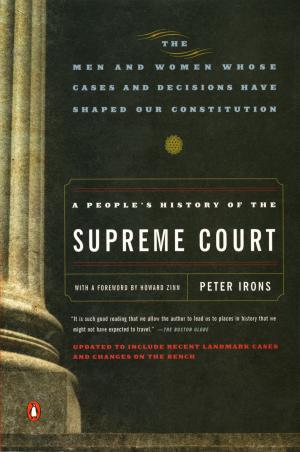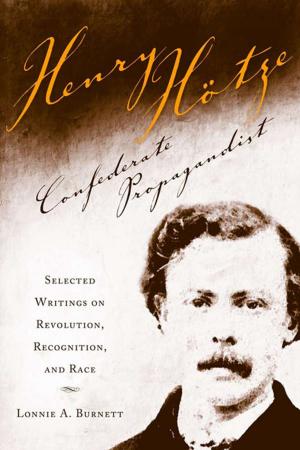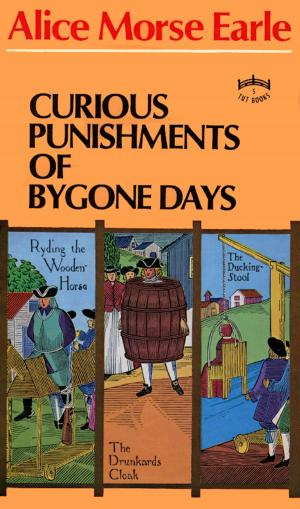Clinton, Louisiana
Society, Politics, and Race Relations in a Nineteenth-Century Southern Small Town
Nonfiction, History, Americas, United States| Author: | V. Elaine Thompson | ISBN: | 9781935754442 |
| Publisher: | University of Louisiana at Lafayette Press | Publication: | June 4, 2014 |
| Imprint: | University of Louisiana at Lafayette Press | Language: | English |
| Author: | V. Elaine Thompson |
| ISBN: | 9781935754442 |
| Publisher: | University of Louisiana at Lafayette Press |
| Publication: | June 4, 2014 |
| Imprint: | University of Louisiana at Lafayette Press |
| Language: | English |
Examining the town's history from 1826 to 1877, Thompson showcases Clinton as a window through which one can view the importance of small towns in the nineteenth-century South. "With its white columned homes and archetypal courthouse square Clinton, Louisiana, exudes the romantic aura of a 'civilization gone with the wind.' Historians, of course, must balance romance with realism. This book does precisely that. Not perhaps since James C. Bonner's classic 1944 study of Milledgeville and Baldwin County, Georgia, has any historian given more sustained and thoughtful attention to the history of a small southern community. Through careful use of census data and a wide range of archival sources, Elaine Thompson takes readers behind the Greek Revival facades so beloved by commercial film makers to reveal the substructure of slavery, violence, exploitation, and Reconstruction political strife that left a permanent mark on the life and culture of Clinton and the Florida parishes. Although post-1865 struggles in Clinton are less dramatic than the racial massacres elsewhere, the Clinton experience is more typical of the gradual realignment of economic and social relations that accompanied the rise of Jim Crow practices in obscure courthouse towns across the rural South. Thompson charts these developments with insight and candor. This book represents an important step in the long overdue work of giving local southern communities the kind of authentic past that can foster honest engagement with problems of the present day." --Clarence L. Mohr, author, On the Threshold of Freedom: Masters and Slaves in Civil War Georgia
Examining the town's history from 1826 to 1877, Thompson showcases Clinton as a window through which one can view the importance of small towns in the nineteenth-century South. "With its white columned homes and archetypal courthouse square Clinton, Louisiana, exudes the romantic aura of a 'civilization gone with the wind.' Historians, of course, must balance romance with realism. This book does precisely that. Not perhaps since James C. Bonner's classic 1944 study of Milledgeville and Baldwin County, Georgia, has any historian given more sustained and thoughtful attention to the history of a small southern community. Through careful use of census data and a wide range of archival sources, Elaine Thompson takes readers behind the Greek Revival facades so beloved by commercial film makers to reveal the substructure of slavery, violence, exploitation, and Reconstruction political strife that left a permanent mark on the life and culture of Clinton and the Florida parishes. Although post-1865 struggles in Clinton are less dramatic than the racial massacres elsewhere, the Clinton experience is more typical of the gradual realignment of economic and social relations that accompanied the rise of Jim Crow practices in obscure courthouse towns across the rural South. Thompson charts these developments with insight and candor. This book represents an important step in the long overdue work of giving local southern communities the kind of authentic past that can foster honest engagement with problems of the present day." --Clarence L. Mohr, author, On the Threshold of Freedom: Masters and Slaves in Civil War Georgia















